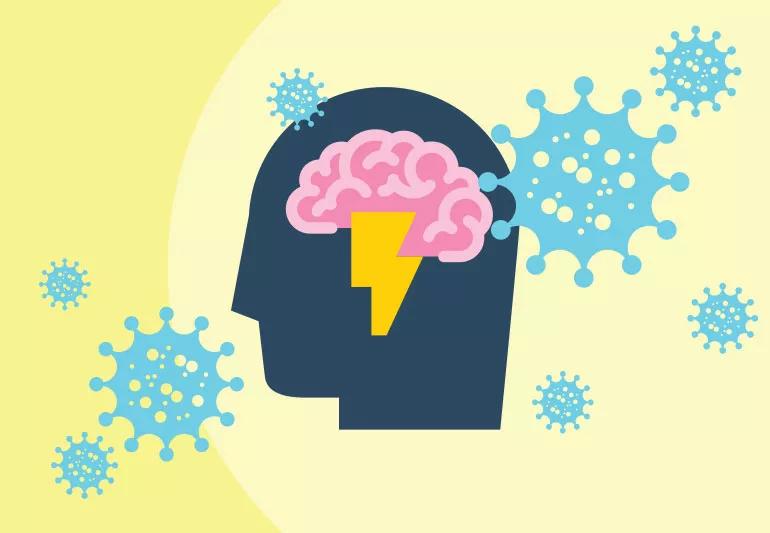The short answer from a stroke expert

Image content: This image is available to view online.
View image online (https://assets.clevelandclinic.org/transform/0b268339-e9bd-48da-8678-24b9020f7d98/covidStroke-530000622-770x553-1_jpg)
illustration of covid-19 and a brain
A: With what seems like an ever-growing list of problems COVID-19 can cause, you might also wonder if the coronavirus can cause a stroke.
Advertisement
Cleveland Clinic is a non-profit academic medical center. Advertising on our site helps support our mission. We do not endorse non-Cleveland Clinic products or services. Policy
While researchers are still studying exactly how COVID-19 affects the brain, the evidence does suggest it could increase stroke risk. But these strokes caused by blood clots appear to be impacting younger people.
It’s not a classic situation of stroke. We’re actually seeing young people who don’t have the traditional risk factors for stroke like high blood pressure, or other problems. These are young, healthy people, who are coming in with big, big strokes.
No matter your age or if you have COVID or not, you should never ignore stroke symptoms. That’s because while there are very effective therapies for stroke, they are time-limited.
There’s a clot-buster medication called TPA, which we can give within four and a half hours. There are also procedures that we can do to remove clots out of blood vessels. But we really want to be doing that within the first six to 24 hours after a stroke starts. The longer that it takes to get treatment, potentially the worse someone can do.
And you shouldn’t be afraid to go to the emergency room because of the COVID-19 pandemic. Hospitals are taking extra precautions to keep all patients safe.
So if you or someone you know is having stroke symptoms – don’t delay care. Seek medical attention immediately.
Advertisement
— Stroke expert Shazam Hussain, MD
Advertisement

Delivered every Tuesday!
Sign up for our Health Essentials emails for expert guidance on nutrition, fitness, sleep, skin care and more
It's a letter about the news!
Learn more about our editorial process.
Advertisement
The short answer: It’s complicated, but the basic care precautions still prevail, like washing your hands and isolating if you’re sick
They can feel like a typical headache or a migraine headache, but the pain can last for weeks to months
Any large social gathering — from a family birthday party to an indoor music concert — has the potential to spread serious infection
It’s important to connect with a healthcare provider, get quality sleep and balance your activities with your energy levels
Just like the flu, COVID-19 will continue to evolve every year
The duration varies, but symptoms can linger for a few days up to a couple weeks or more
Vaccination is best for prevention, but if you get sick with COVID-19, treatments are available
The virus lives best in humans, but it can last on hard surfaces, like doorknobs and railings
Type 2 diabetes isn’t inevitable with these dietary changes
Applying a hot or cold compress can help with pain
Pump up your iron intake with foods like tuna, tofu and turkey